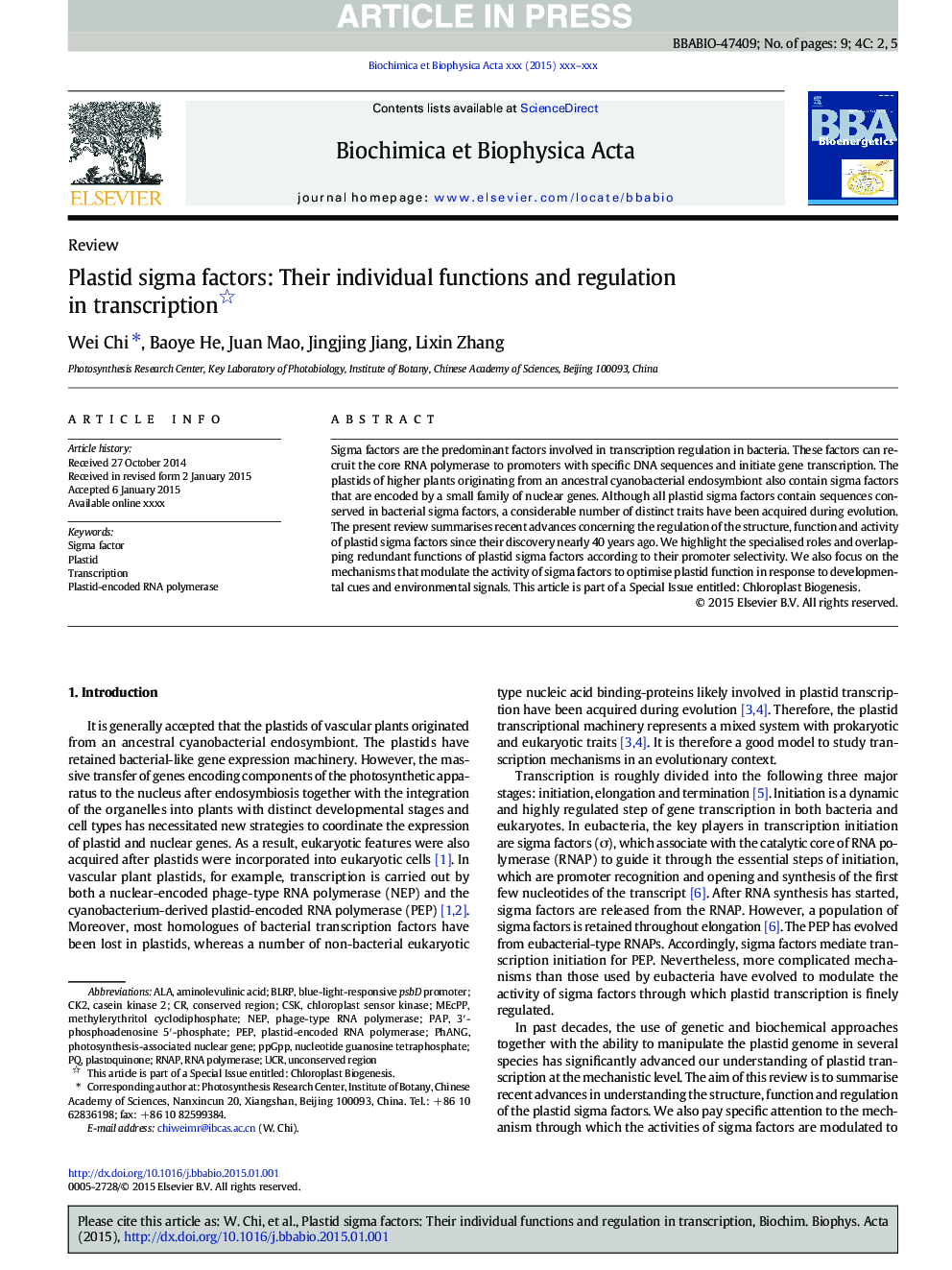| Article ID | Journal | Published Year | Pages | File Type |
|---|---|---|---|---|
| 10795368 | Biochimica et Biophysica Acta (BBA) - Bioenergetics | 2015 | 9 Pages |
Abstract
Sigma factors are the predominant factors involved in transcription regulation in bacteria. These factors can recruit the core RNA polymerase to promoters with specific DNA sequences and initiate gene transcription. The plastids of higher plants originating from an ancestral cyanobacterial endosymbiont also contain sigma factors that are encoded by a small family of nuclear genes. Although all plastid sigma factors contain sequences conserved in bacterial sigma factors, a considerable number of distinct traits have been acquired during evolution. The present review summarises recent advances concerning the regulation of the structure, function and activity of plastid sigma factors since their discovery nearly 40Â years ago. We highlight the specialised roles and overlapping redundant functions of plastid sigma factors according to their promoter selectivity. We also focus on the mechanisms that modulate the activity of sigma factors to optimise plastid function in response to developmental cues and environmental signals. This article is part of a Special Issue entitled: Chloroplast Biogenesis.
Keywords
Related Topics
Life Sciences
Agricultural and Biological Sciences
Plant Science
Authors
Wei Chi, Baoye He, Juan Mao, Jingjing Jiang, Lixin Zhang,
